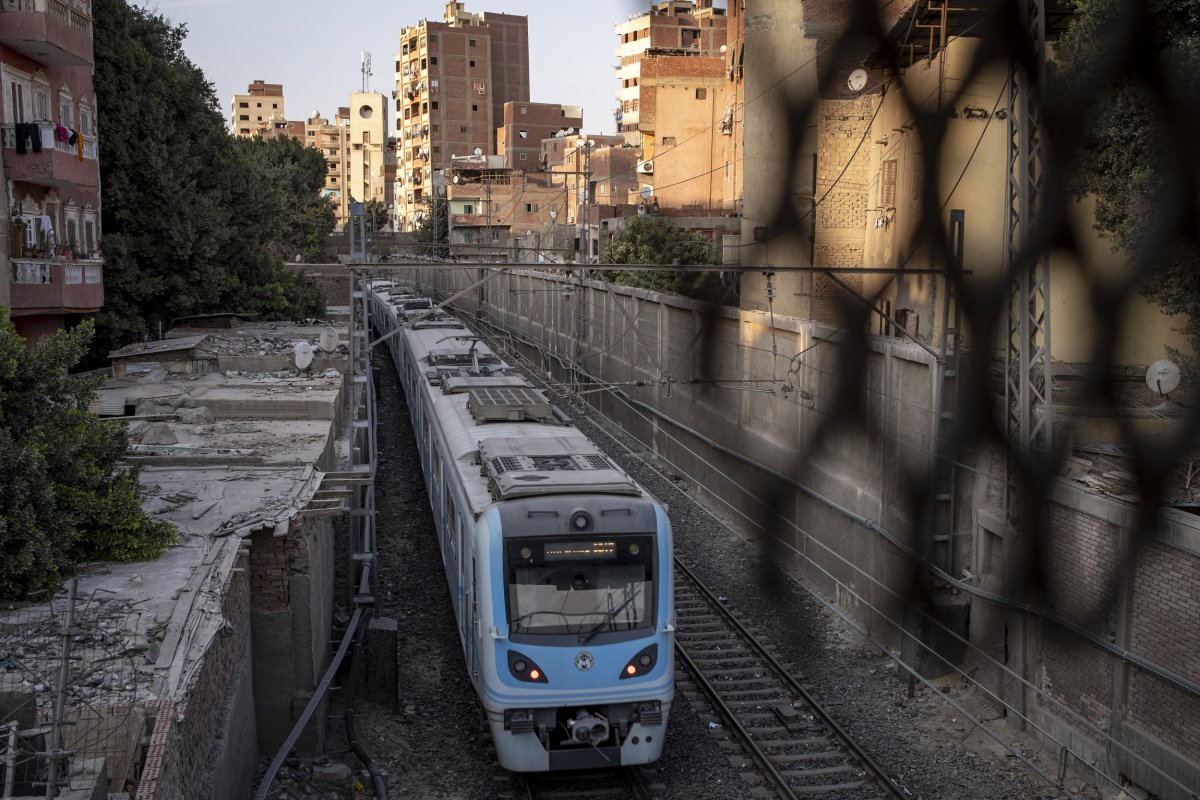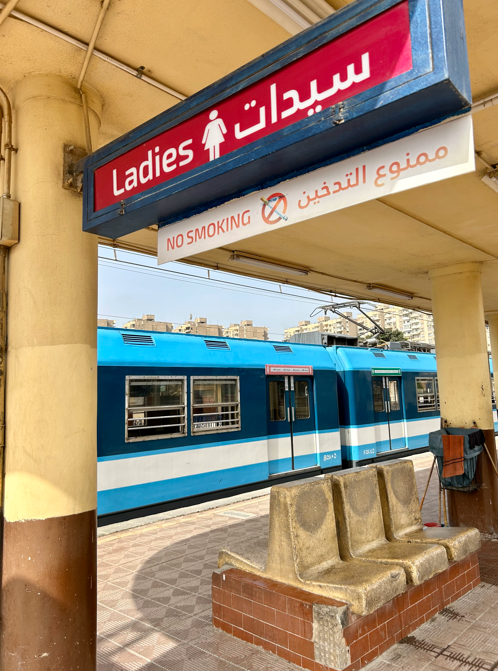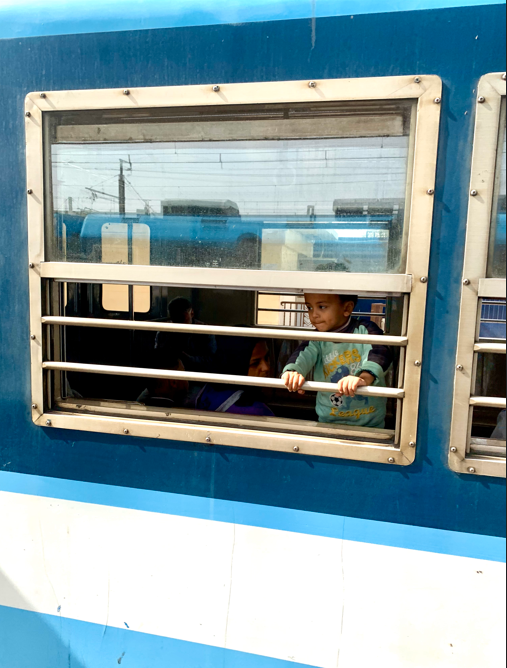It's no secret that New York City's subway system has been plagued by safety issues. The increase in subway crimes have led to a decrease in public trust and safety. Recently, New York deployed the National Guard to alleviate the crisis. As someone who resides between New York and Cairo, I find the parallels fascinating between these two cities that never sleep, but the intricate framework behind New York's public transportation is lacking. What can New York City Mayor Eric Adams learn from Cairo's metro system?
For starters, bag-screenings are a routine aspect of Cairo's metro system. Recently, subways incorporated bag checks at stations deemed busy, a measure that fails to address the reality that crimes can occur (or begin) regardless of the terminal's traffic. I remember a subway trip during off-peak hours last summer where the passenger seated beside me had "forgotten" to take his knife out of his pocket, which caused the blade to dig into my leg. Today, that same subway station has no bag-checks in sight.

Additional to bag screenings, Cairo utilizes walk-through metal detectors, a swift and reasonable request that hasn't seemed to deter busy riders on their commutes. After all, New York City's subway system served 3.2 million passengers in 2022, less than Cairo's which served 3.5 million passengers.
More than the security measurements, a major difference I found with Egypt's metros was their women's-only compartments. While some visitors have criticized these carts for "segregation," this Western-centric viewpoint ignores that Egypt's women's-only carts—which exist in Mexico, Japan, and India—are not mandatory, but rather establish a space for women's comfortability whether cultural, religious, or as a safety measurement. As a safety-measurement, women's-only compartments only serve as a Band-Aid in a larger global conversation about harassment and other forms of violence against women, but could still be beneficial for an immediate call-to-action by Mayor Adams.

Moreover, the New York subway system's lack of innovation and growth has set itself up to fail. Rather than evolve with the urban landscape, the subway has become a time capsule of a void structure that no longer serves the community. Egypt's metro, the first in Africa and the Middle East, has only continued to grow since its opening in 1987. The development of its new lines have implemented thousands of new jobs, recruiting female drivers to combat the male-dominated culture of transportation. On the other hand, New York subways have failed to grow, increase accessibility during off-peak hours, and even saw staffing issues under former New York Governor Andrew Cuomo's era. Egypt's metro system's success opens a larger conversation about the culture of New York that has allowed this lack of cleanliness and safety to get to what it is today.
While far-right outlets try to vilify New York City as being a Gothom-esque liberal city of law-breaking citizens, it's necessary to reframe the narrative and look at who—or what—creates this environment. While Mayor Adams has a history of blaming others—he recently said that the root issue of the subway crisis lies in "recidivism"—he fails to acknowledge his own power, or address ways to rectify the subway system. Mayor Adams is only the most recent of a long line of New York mayors and officials who have contributed to an apathetic culture where only the needs of the 1 percent are of concern.
The largest difference I noticed between New York and Cairo's public transportation was the community-oriented mentality found in Cairo: signing new protocols to ensure better access for disabled folks, the common courtesy of offering seats to the elderly, and reframing from smoking among others. The passenger experience is better because Egypt's Ministry of Transportation and officials work to assist the community. The anger subway passengers witness in NYC is a representation of a New York whose officials don't show care in investing in the safety or well-being of its community.

To call New York City's subway a pioneering wonder would be incorrect. The subways have historically always been dark, reflected in fatalities and accidents from poor management in its early years, such as the Malbone Street wreck that led to the loss of 93 lives in 1918. But while NYC's passengers have grown to trust and expect a prompt response to any safety issues when it pertains to mechanics, there is little faith for a solution to the rise in transit crimes.
Rather than try to repeat the same actions, New York City needs to look to other countries that have implemented successful public transportation measures that serves the community. Cairo is just one of many countries that have created capable models for transportation. The National Guard can't save the Big Apple, but a new approach can.
The most blatant contrast I observed between New York City and Cairo—or in a larger cultural context, between the United States and Egypt—is the mythopoetic American arrogance that it's a "first world country," and therefore, has little to learn from a global perspective. What would be innovative is for New York City to acknowledge its shortcomings—from its transit structure to its mental health services—and look to other countries for guidance. Maybe then Mayor Adams' policies can truly be groundbreaking and work to rebuild the city's archaic system far past its sell-by date.
Costa Beavin Pappas is a graduate of American University. His work has been featured in ELLE, Oprah Daily, Business Insider, The Observer, and Newsweek, among others. He splits his time between New York City and Cairo, Egypt.
The views expressed in this article are the writer's own.
Uncommon Knowledge
Newsweek is committed to challenging conventional wisdom and finding connections in the search for common ground.
Newsweek is committed to challenging conventional wisdom and finding connections in the search for common ground.
About the writer
To read how Newsweek uses AI as a newsroom tool, Click here.








